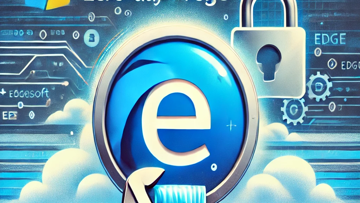Safe to install
Streamline Your Work with BYOD by Chowdhury DSP
BYOD by Chowdhury DSP offers a comprehensive solution for managing Bring Your Own Device policies, enhancing productivity while ensuring robust security measures.
Chowdhury DSP notes that the benefits of BYOD include increased employee satisfaction and productivity, as well as cost savings for employers who no longer need to purchase devices for their entire workforce. However, they also recognize the potential security risks and recommend implementing policies and procedures to minimize those risks.
The article goes on to provide tips for successfully implementing a BYOD program in the workplace, such as providing training for employees and regularly monitoring device usage. Chowdhury DSP emphasizes the importance of clarity and communication with employees regarding company expectations and guidelines.
Chowdhury DSP's informative article provides a comprehensive overview of the BYOD trend and offers valuable guidance for companies looking to implement a successful BYOD program.
Overview
BYOD is a Shareware software in the category Miscellaneous developed by Chowdhury DSP.
The users of our client application UpdateStar have checked BYOD for updates 31 times during the last month.
The latest version of BYOD is currently unknown. It was initially added to our database on 02/12/2023.
BYOD runs on the following operating systems: iOS.
BYOD has not been rated by our users yet.
Pros
- Easy to use interface that allows users to bring their own device (BYOD) and connect to the network seamlessly
- Enhances productivity by allowing employees to work on their own devices
- Improves flexibility and can reduce costs for a company by not having to provide specific devices for all employees
Cons
- Security concerns related to allowing personal devices on the network
- Potential risks from malware or unauthorized access through personal devices
- Compatibility issues may arise with different operating systems or device types
FAQ
What is BYOD?
BYOD stands for Bring Your Own Device, which refers to the practice of employees using their personal devices (such as smartphones, tablets, or laptops) for work-related tasks.
What are the benefits of implementing a BYOD policy?
Some of the benefits of implementing a BYOD policy include increased employee satisfaction and productivity, cost savings for the organization, and the ability to attract millennial talent who prefer using their own devices.
What security risks are associated with BYOD?
BYOD introduces various security risks such as potential data breaches, device loss or theft, malware infection, and insufficient control over employee devices. A comprehensive security strategy should be implemented to mitigate these risks.
How can organizations ensure data security in a BYOD environment?
Organizations can enhance data security in a BYOD environment by enforcing strong security policies and protocols, implementing mobile device management (MDM) solutions to secure and monitor devices, enabling encryption, conducting regular security audits, and educating employees about safe practices.
Are there any legal considerations associated with implementing a BYOD policy?
Yes, there are legal considerations such as privacy laws, intellectual property rights, and compliance with industry regulations. It is important to consult legal counsel and establish clear policies to address these concerns.
What challenges might organizations face when adopting BYOD?
Some challenges organizations might face when adopting BYOD include fragmented device ecosystems, compatibility issues with different operating systems, managing employee expectations regarding device support, and balancing security requirements with user convenience.
What is the role of a Mobile Device Management (MDM) solution in BYOD?
An MDM solution assists in managing and securing employee devices used in a BYOD program. It enables organizations to enforce security policies, control access to corporate resources, remotely wipe devices in case of loss or theft, and ensure compliance with company policies and regulations.
How can organizations address employee privacy concerns in a BYOD program?
To address employee privacy concerns, organizations should establish transparent policies that clearly define the extent of monitoring and control over personal devices. They should also ensure that personal data is not accessed or used without proper consent, focusing only on securing corporate information.
Should organizations provide technical support for employee-owned devices?
It is recommended that organizations provide limited technical support for employee-owned devices, focusing on assisting with connectivity to corporate resources and resolving issues related to security tools or applications required for work. Organizations should establish clear boundaries to prevent IT departments from being responsible for overall device troubleshooting.
What considerations should organizations make when developing a BYOD policy?
When developing a BYOD policy, organizations should consider factors such as device compatibility and support, acceptable use guidelines, security requirements, employee privacy concerns, reimbursement or compensation strategies, legal and compliance considerations, and an exit strategy for when an employee leaves the organization.
Minh Ong
I'm Minh, a software engineer and author with a passion for exploring and writing about the latest in software and technology. With my experience in software development and a specialization in software updates and content creation, I bring a deep understanding of the tech landscape to my reviews and articles. My focus is on providing you with comprehensive insights into general software topics and the latest industry news.
Latest Reviews by Minh Ong
Installations
Related products
AirChime: Music in the air
Using Machine Learning, AirChime enables users to play piano chords by utilizing various hand poses through the front-facing camera of their devices.Format 3
Format 3, developed by Foo/Skou, presents an engaging interactive augmented reality experience that integrates physical artwork with virtual elements and soundscapes.GyroSynth
GyroSynth: Transform Your Audio Experience with MotionmusicLabe: make music freely
Unleash Your Inner Musician with musicLabeNot YYZ
"Not YYZ" is a unique application designed for avid fans of the band Rush, offering an intriguing exploration of musical interpretation.Portable Dandy
Portable Dandy by Stephan Hepper: A Comprehensive Review Portable Dandy is a versatile software application developed by Stephan Hepper that offers a wide range of features for users looking to enhance their productivity and …Roxsyn Guitar Synthesizer
Introducing Roxsyn, the world's first metamorphic guitar synthesizer, providing a revolutionary approach to transforming your guitar or bass into a fully equipped polyphonic synth.RRS MEQ-5
The MEQ-5 AUv3 plug-in is available as a time-limited Demo version for users to experience. It offers 5 minutes of free playtime which can be reloaded as desired to extend the Demo period.Tempus - Delay Calculator
Tempus offers a comprehensive set of features tailored for musicians and audio professionals alike. Among its capabilities are a tap-tempo metronome with customizable beat settings, the ability to visualize delay times, and the ability to …Latest Updates
Inventory & Stock Online 2.4.51
This stock and inventory management solution presents an efficient tool for small retailers, suppliers, and medium-sized manufacturers. It emphasizes ease of use, enabling users to streamline inventory control with minimal effort.Knoxville Wx 5.17.604
Stay informed and prepared with the Knoxville Weather app. This application is brought to you by the reputable weather experts at WATE 6 On Your Side Storm Team, offering the most precise hour-by-hour forecast for East Tennessee.RiksTV 3.0.1
Watch TV anywhere in Norway - on mobile, tablet, Apple TV, and Android TV. With the RiksTV app, you can watch live TV, weekly archives, sports, news, movies, and series wherever you are, both at home and throughout the EU/EEA.AnimeLook:AI Photo Editor 1.4
AnimeLook: AI Photo Editor is an innovative tool in the realm of AI art generation, offering users the opportunity to translate text prompts into striking visual images.ドット魔女 私は魔法(物理)で無双する 1.25.1
A tower defense game with over 5 million downloads worldwide has made its debut in Japan. As an imminent army of monsters approaches, players are called upon to mobilize the witches of the castle to confront this looming threat.FastPay-Send Money (TW to PH) 4.6.1
Our services include: Send Money from Taiwan to the Philippines Quick and easy registration process Payment convenience at select stores (7-ELEVEN, Family Mart, Hi-Life, OK Mart) Flexible money collection …App Store
with UpdateStar freeware.
Latest News
Latest Reviews
|
Microphone Live
Transform Your Voice with Microphone Live by Von Bruno |
|
|
中國信託行動銀行 Home Bank
Revolutionary Banking Experience at Your Fingertips |
|
|
Controller: Aircraft for Sale
Find Your Dream Aircraft with Sandhills Global |
|
|
Tiger Multiplayer - Siberia
Experience the Wild in Tiger Multiplayer - Siberia |
|
|
Handwriting To Text Recognizer
Transform Your Handwritten Notes into Digital Text with Ease |
|
|
Fit 3D!
A Unique Fitness Revolution: Fit 3D! by SDP Games SAS |
|
UpdateStar Premium Edition
Keeping Your Software Updated Has Never Been Easier with UpdateStar Premium Edition! |
|
|
Microsoft Visual C++ 2015 Redistributable Package
Boost your system performance with Microsoft Visual C++ 2015 Redistributable Package! |
|
|
Microsoft Edge
A New Standard in Web Browsing |
|
|
Google Chrome
Fast and Versatile Web Browser |
|
|
Microsoft Visual C++ 2010 Redistributable
Essential Component for Running Visual C++ Applications |
|
|
Microsoft Update Health Tools
Microsoft Update Health Tools: Ensure Your System is Always Up-to-Date! |






